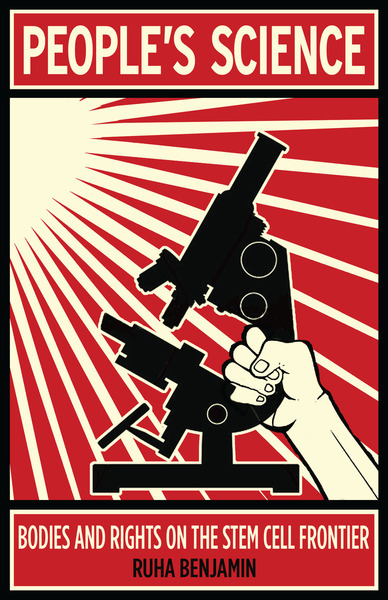PEOPLE’S SCIENCE: BODIES & RIGHTS ON THE STEM CELL FRONTIER
(Stanford University Press 2013)
“As we move full steam into an era of citizen-driven science, Ruha Benjamin’s wonderful examination of stem-cell initiatives is a welcome reminder that politics and social justice don’t necessarily enjoy a good prognosis even when scientific priorities are motivated by democratic processes. Science of the people, by the people and for the people does not always mean all the people.”
“Telling the story of the social and political lives of stem cells in America, Ruha Benjamin compels you to consider how political expedience and vague promises of a better future too often trump social equity in publicly funded scientific research. This is an immensely important and timely book, impeccably researched and forcefully argued.”
“Ruha Benjamin powerfully contests the autonomy of scientists and argues instead for a radically inclusive public engagement in science. Grounded in the heated battle over stem cell research, People’s Science highlights the voices of people with disabilities, African Americans, and women to show why citizens should have the power to influence science as much as scientists influence society. A must read for students and scholars interested in science and society, as well as advocates for more democratic participation in cutting-edge biotechnologies.”
“In this fascinating account of an experiment both political and scientific, Ruha Benjamin takes us behind the scenes of California’s massive, voter-driven investment in stem cell research. People’s Science examines the tread marks where the rubber meets the road: Whose interests are served, whose bodies provide the raw research materials, and which groups reap the benefits? This is a must-read contribution to our understanding of health disparities, ‘biological citizenship,’ and the politics of knowledge-making.”

